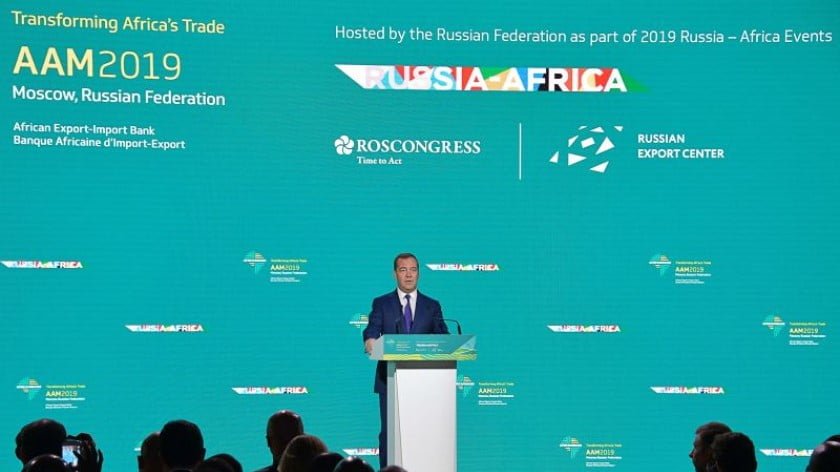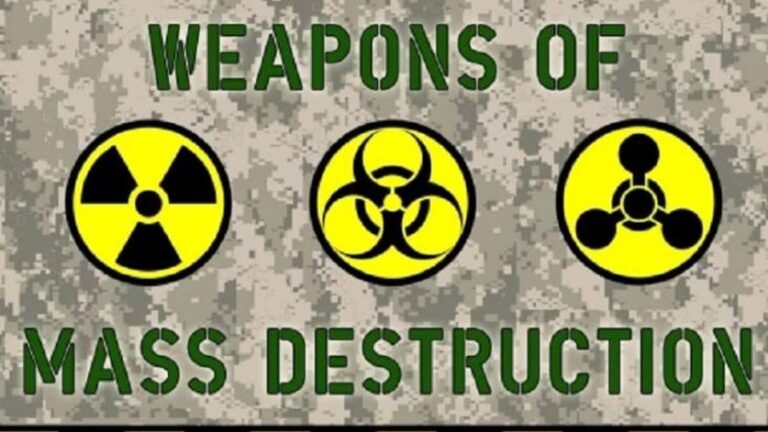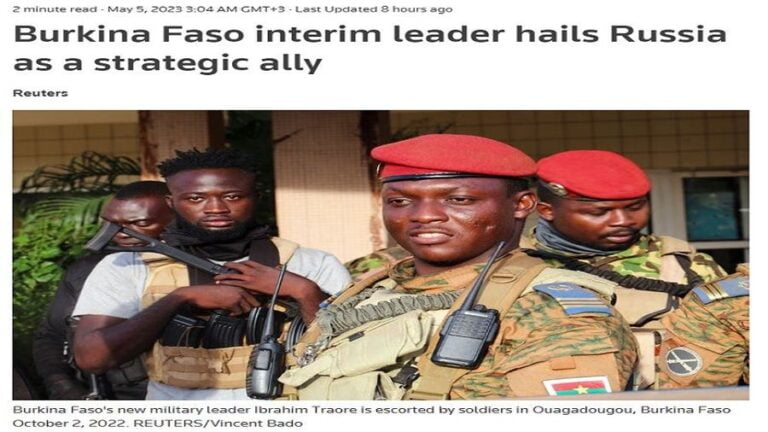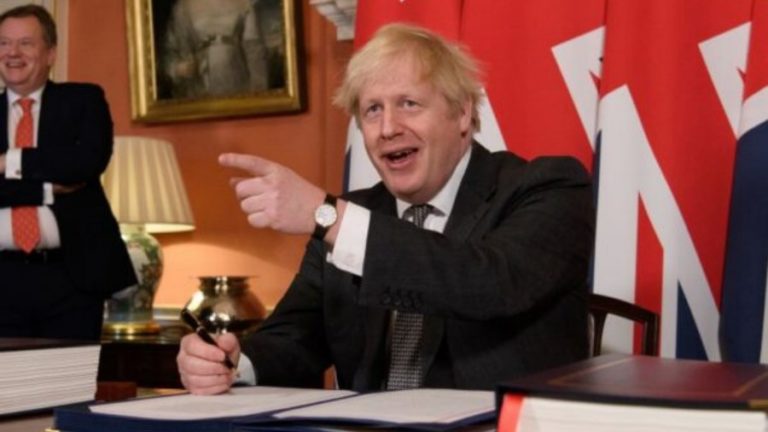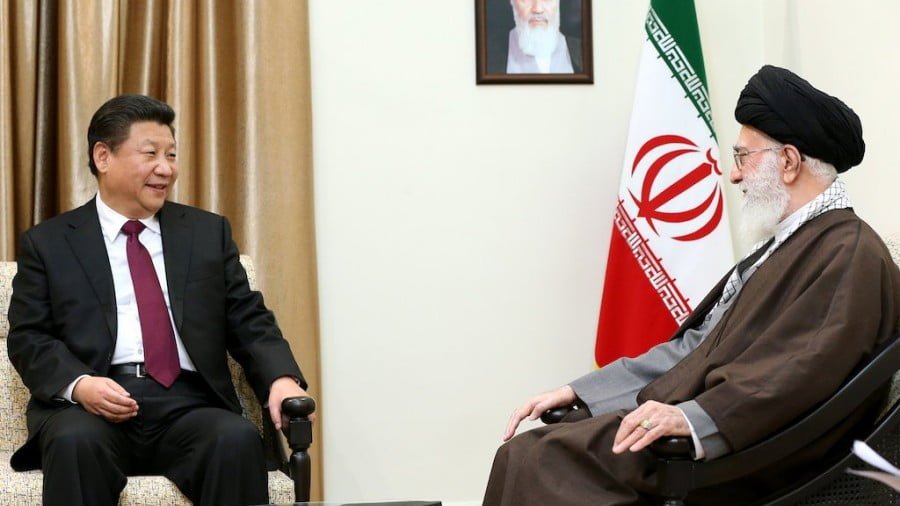US Sanctions Threats Won’t Stop Russia-Africa Security Cooperation
The US’ reported threats to sanction African countries that buy Russian weaponry won’t succeed in stopping security cooperation between Moscow and its partners, though it’s nevertheless a clever way to try to exploit those nations’ “deep state” divisions in a desperate bid to reverse Russian influence in the continent.
***
Russian Foreign Ministry spokeswoman Zakharova warned last week that the US has been threatening to sanction African countries that buy her homeland’s weaponry, though confidently adding that this scheme won’t succeed in curtailing security cooperation between Moscow and its partners because “the supplies of Russian military equipment are a prerequisite for maintaining their national security and sovereignty, so they have no intention to give up cooperation with us in this field.” The threats that she’s referring to most likely stem from the reported expansion earlier this year of the US’ “European Recapitalisation Incentive Programme” that would in effect “encourage” non-Western countries to purchase discounted American arms in exchange for avoiding possible CAATSA sanctions. “The US Is More Africa Of Losing Africa To Russian Than To China” because Moscow’s “military diplomacy“-driven pivot to the continent, as recently advanced to a significant degree by the completion of its “African Transversal“, has a greater likelihood of effectively”balancing” Western (US & French) influence there than Beijing’s numerous BRI-related construction projects do.
To explain, Russia’s arms sales and strategic dispatch of military advisors (and even sometimes private military contractors) ensure stability in fragile conflict-torn or -threatened states, most of which have “centralized” National Democracies (regarded as “authoritarian” in the Western political parlance) that are easily influenced through this important inroad being made to its “deep state” (military, intelligence, and diplomatic bureaucracies, with an emphasis on the military component in this specific context). The restoration or maintenance of law and order in restive regions is achieved through Russia’s indirect “military interventions” in those countries, with the Central African Republic (CAR) being the case in point that established the precedent for how this model is supposed to unfold all across the continent. In exchange for these indispensable security services, recipient states seal lucrative extraction deals with Russian companies, which then spreads Moscow’s influence from the military realm to the economic one since many of these countries’ budgets are disproportionately dependent on resource exports.
Upon solidifying its influence in the military and economic spheres, Russia can then more easily expand its sway into the political one as well, but it must be remembered that this entire strategy is dependent on its initial military phase which seeks to capitalize on the continental chaos unleashed by the West’s Hybrid Wars in Africa. Aware of this, the US is seeking to strike straight at the source of Russia’s renewed African influence by threatening its partners with sanctions if they continue to buy military equipment from Moscow, but as Zakharova said, these supplies “are a prerequisite for maintaining their national security and sovereignty”, which is why the American scheme won’t succeed. Nevertheless, it’s a clever one because targeted sanctions against military officials in Russia’s African partners could exacerbate “deep state” divisions by making some of these supposedly corrupt individuals have to choose between their national and personal interests, which sometimes leads to them leaning towards the latter. In the event that they’re true patriots, then the US might broaden its sanctions (whether threatened or promulgated) to include specific sectors or even the national economy as a whole, which would be intended to eventually spark Color Revolutions within those countries.
All responsible stakeholders in any country realize that economic development can only be maintained if security is guaranteed, hence Zakharova’s confidence that Russia’s African partners “have no intention to give up cooperation with [Moscow] in this field.” The reality is that few African countries trust the US and France after decades of their neo-colonial practices across the continent, and some of them are also suspicious of China’s strategic intentions too as a result of the relative successes made in recent years throughout the course of America’s anti-BRI infowar. This state of affairs naturally inclines them to gravitate towards Russia as a “third way” between the West and China, exactly as Valdai Club programme director Oleg Barabanov foresaw would happen when he proposed that his country become the leader of a new Non-Aligned Movement (Neo-NAM) in his policy paper earlier this year about “China’s Road to Global Leadership: Prospects and Challenges for Russia“. Given this prevailing dynamic as well as the irreplaceable role that Russia is poised to play in ensuring Africa’s security and therefore consequent development, the upcoming first-ever Russia-Africa Summit in Sochi next month will certainly solidify Moscow’s influence there and prove that Washington’s plans have failed.
By Andrew Korybko
Source: OneWorld

